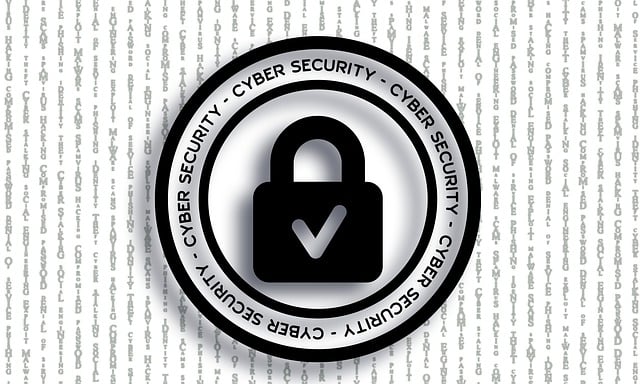Students searching for campus housing must be vigilant against rental scams college and student housing scams. Scammers target them with fake listings, low prices, urgent language, and requests for upfront payments or personal info. To avoid these rental frauds, students should:
Be wary of listings with red flags like unusually low prices or vague descriptions.
Verify landlords' legitimacy through credentials, contact info, and reviews.
Research market rates for comparable properties.
Report suspected scams to relevant authorities or college offices.
Practice safe college renting by following these tips and staying alert to protect themselves from student rental tips like scams.
Navigating the student housing market can be a challenging task, especially with the rise of online listings and competitive rental scenarios. Understanding common rental scams targeting students is essential for safe college renting. This guide equips you with the knowledge to spot red flags in student housing listings, avoid fraudulent advertising and overpriced rentals, and report potential scams to protect fellow students. By following these expert tips, you can ensure a secure and stress-free transition into your new living space.
- Understanding Common Rental Scams Targeting Students
- How to Spot Red Flags in Student Housing Listings
- Protecting Yourself: Essential Tips for Safe College Renting
- Avoiding Fraudulent Advertising and Overpriced Rentals
- Reporting and Preventing Student Housing Scams
Understanding Common Rental Scams Targeting Students

Many students fall victim to rental scams each year, especially when navigating the unique challenges of finding housing near campus. Being aware of common rental scams is essential for ensuring a safe and secure college renting experience. Scammers often target students due to their lack of rental history and eagerness to find affordable housing close to schools.
One prevalent scam involves fake listings that promise luxurious off-campus apartments at unusually low prices. Scammers create convincing online ads, often with attractive photos, luring unsuspecting students. Another common tactic is the use of urgent language, pressuring tenants to sign lease agreements promptly without thorough scrutiny. Students should exercise caution when encountering listing that require immediate payment or ask for personal information before viewing the property. Verifying the legitimacy of a rental opportunity through direct communication with the landlord and independent research is crucial to avoiding these student housing scams.
How to Spot Red Flags in Student Housing Listings

When browsing student housing listings, keep an eye out for red flags that might indicate a rental scam. Be wary of listings with extremely low prices compared to market rates or those that ask for upfront payments before viewing the property. Scammers often target desperate students by promising luxurious accommodations at bargain prices, but these are usually too good to be true.
Another common tactic is the use of pressure tactics and urgent language, such as “act fast” or “limited availability.” Legitimate landlords don’t typically employ such strategies. Additionally, be cautious of listings that lack detailed descriptions or photos. If a listing seems suspicious, verify it with other sources or reach out to the college’s housing office for guidance on safe renting practices.
Protecting Yourself: Essential Tips for Safe College Renting

Protecting yourself from rental scams in the college housing market is crucial for any student looking to secure a safe and reliable place to live. Here are some essential tips to ensure a smooth renting experience:
Always verify the legitimacy of the landlord or property manager. Check their credentials, contact information, and reviews from previous tenants. Be cautious when dealing with unsolicited offers or those promising too-good-to-be-true deals. It’s smart to research market rates for comparable properties to ensure you’re not being overcharged. Stay alert for red flags like demands for upfront payments without a signed lease or requests for personal information through unsecure channels. Keep your personal details private until you’ve confirmed the property’s authenticity and legality.
Avoiding Fraudulent Advertising and Overpriced Rentals

When searching for student housing, it’s crucial to be vigilant against rental scams college and student housing scams. Fraudulent advertisers often employ clever tactics to lure unsuspecting students. They may advertise overpriced rentals with enticing amenities or claim exclusive access to campus areas. To avoid these rental frauds, thoroughly research the property and landlord before signing any agreements. Look for red flags like frequent changes in contact information, vague descriptions, or unusually low prices compared to other listings.
Use student rental tips such as reaching out to the university housing office for verified off-campus resources. Cross-reference ads with trusted sources, and consider visiting the property before committing. Safe college renting means protecting yourself from potential scams and ensuring you get what you pay for. Be smart, be informed, and don’t let deceptive advertising trap you into a costly and unsafe living situation.
Reporting and Preventing Student Housing Scams

Recognizing and reporting scams is a powerful tool in the fight against student housing fraud. Students should be vigilant and proactive when it comes to their rental choices. One of the first steps to take is to educate oneself about common rental scams that target college students, such as fake listings, overpriced accommodations, or illegal fee structures. Staying informed can help students avoid falling victim.
If a student suspecting a scam, they should gather evidence, including screenshotting any deceptive advertisements and noting communication details with the supposed landlord. Reporting these incidents to local law enforcement, housing authorities, or dedicated fraud reporting platforms is crucial. Many colleges also have offices dedicated to student housing issues; reaching out to them can provide additional support and ensure these scams are documented and addressed. Following these steps not only helps protect individual students but also contributes to a safer college rental environment for everyone.














